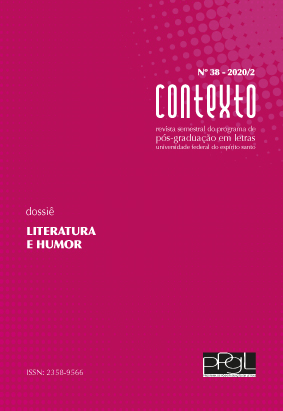Brás Cubas’s Playful Nihilism: Machado de Assis Laughs at the Voluptuosity of Nothingness
DOI:
https://doi.org/10.47456/contexto.v%25vi%25i.32748Resumo
ABSTRACT: It has become commonplace to portray Machado de Assis as a preeminent pessimist or nihilist. This reading, however, is highly questionable, since he used to use humor as one of the main principles of literary composition in his works. In fact, writing with a playful pen, he used to ironize the pessimism and nihilism of his time. This paper is an attempt to explicit the concept of playful nihilism as it appears in the novel The posthumous memoirs of Brás Cubas (1881). This paper focuses on the following issues: Brás Cubas narrative, with a playful pen, combines philosophy and literature in such a way that philosophical content and literary form become inseparable; Machado also laughs at the death of God, as a confrontation of metaphysical seriousness. A comparison is made between Nietzschean nihilism and Machadean playful nihilism.
KEYWORDS: Machado de Assis - The Posthumous Memoirs of Brás Cubas. Machado de Assis -Nihilism. Machado de Assis – Playfulness at Death of God.
Downloads
Publicado
Edição
Seção
Licença
Copyright (c) 2020 Vitor Cei

Este trabalho está licenciado sob uma licença Creative Commons Attribution-NonCommercial 4.0 International License.

Este obra está licenciado com uma Licença Creative Commons Atribuição-NãoComercial 4.0 Internacional.





